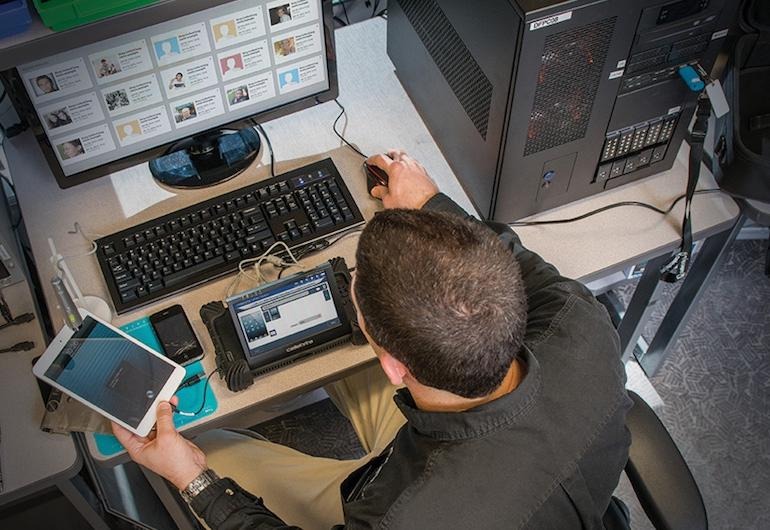Congratulations are due to the FBI for breaking Apple's security on a pair of iPhones. Given that success, it's time to stop the federal call for iPhone backdoors.
Here we go again. Apple is in the spotlight, again, for a security stance that they are taking to protect its users.
In case you missed it, on Monday, the FBI and US Attorney General William Barr issued a statement that whined about Apple giving no help to law enforcement, despite admitting earlier in 2020 that Apple nearly immediately provided iCloud contents.
A few hours later, Apple told its side of the story, stopping just short of directly calling Barr a liar.
"On this and many thousands of other cases, we continue to work around-the-clock with the FBI and other investigators who keep Americans safe and bring criminals to justice. As a proud American company, we consider supporting law enforcement's important work our responsibility," Apple said. "The false claims made about our company are an excuse to weaken encryption and other security measures that protect millions of users and our national security."
This war of words is just the latest artillery exchange in the ongoing battle between Apple and the feds that's been raging for five years, though. In January the FBI asked Apple to unlock the shooter's iPhones, and Barr demanded the same.
In short order, Apple denied the request. Previous demands, like those following the San Bernardino shooting, were made due to a lack of other options available to law enforcement agencies.
The FBI proved in Monday's statement that they have those tools now, and have no need of Apple's help. Tools from Grayshift, Cellebrite, and others provide ways to extract the contents of a locked iPhone, and have for years.
"We've got the tools to extract data from an iPhone 5 and 7 now," forensic firm Garrett Discovery CEO Andy Garrett said in late 2019. "Everybody does."
For governments and law enforcement agencies, the tools are reasonably priced. The software and hardware suite needed to gain access is around $15,000. This is a far cry from the near $1 million the FBI was alleged to have spent to access an iPhone 5C at the heart of the San Bernardino investigation.
But yet, here we are, still and again. The latest Barr-penned missive yet again calls for the mandated addition of encryption backdoors, supposedly in such a way that only law enforcement can gain access to stored data while still maintaining security. Tech companies and critics of the idea counter with the obvious observation that adding any backdoors at all will weaken device security overall.
Any encryption backdoors or security flaws will fall into the wrong hands. You don't have to look any farther than the exploits that have popped out as of late that had to be wrung from the devices over years of work by researchers — and federal agencies like the NSA.
An intentional backdoor won't take that long to discover. The iPhone front door can be as strong as Apple wants to make it, but if the back porch door is secured with the digital equivalent of a chopstick holding the door shut, all that work securing the entry won't matter.
Backdoors are still not the answer
Like we've said before, again and again, the cat-and-mouse game between law enforcement and criminals has been played as long as civilization has existed. And, once again, in the interest of expediency, the government wants to unlock smartphones on demand.
And, again, Apple is telling the feds to forget about it, and are being specific about why they should. Like Apple has said before, there is no backdoor limited only to the good guys. If it exists, it will be found and used by the bad guys.
Apple works to keep us safer, and should they accede to these continuing demands, we will all be less safe. Apple's continuing line in the sand benefits us all.
But, that line in the sand is surmountable by law enforcement. The FBI managed to get into these iPhones, loudly trumpeting that Apple didn't help break into the phones.
With Monday's release, the FBI has proven that the Secure Enclave and Apple's security isn't an issue for law enforcement, provided that they are sufficiently motivated. While there may have been a doubt before, and perhaps a point to be made, the FBI has practically demonstrated that there isn't any doubt about the capabilities of law enforcement and no point in the encryption backdoor argument any longer. Barr just wants to use encryption and Apple's stance on user protection as a political point-maker.
In his role as United States' Attorney General, he knows full well that the public will be less safe if he gets what he wants. He also obviously just doesn't seem to care.
 Mike Wuerthele
Mike Wuerthele







-m.jpg)






 Marko Zivkovic
Marko Zivkovic
 Christine McKee
Christine McKee
 Andrew Orr
Andrew Orr
 Andrew O'Hara
Andrew O'Hara
 William Gallagher
William Gallagher


 Bon Adamson
Bon Adamson




-m.jpg)



33 Comments
So, the article basically says that the FBI's demands are unwarranted because there are enough security bugs in iOS that the government can always use one of those bugs to get into any phone if it cares to do so.
That doesn't exactly sound like a great argument. Apple should be making phones that are essentially impossible to break into, and that they are not yet doing so is good for governments, and thieves, but not so great for Apple's customers.
"Unwarranted." I see what you did there.